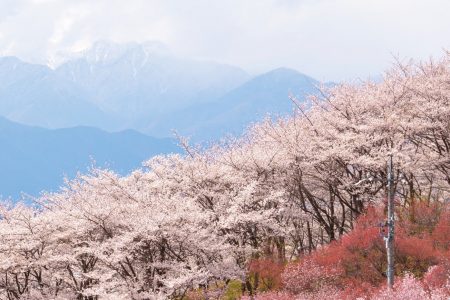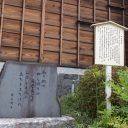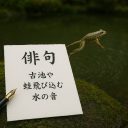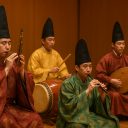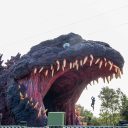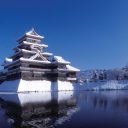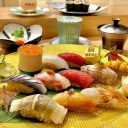Shiwasu is an old name for Jūnigatsu (十二月December) and is written in kanji (漢字 Chinese characters) with shi (師 teacher, Buddhist monk) and hashiru (走る to run). A popular explanation of the etymology of this word is “Teachers and Buddhist monks are busily running around everywhere with their respective duties at the end of the year”. However, the original etymology has long been lost and the kanji is merely phonetic equivalents or false substitute characters.
Annual events in Shiwasu
Nonetheless, there are a variety of annual events in Shiwasu. All of them basically look back on what has happened during the year and people reflect on what they could improve in the coming new year.
Harikuyō (針供養 memorial services for needles)
Hari (針) means needles and kuyō (供養) means memorial service. On the 8th of December (in some regions, on the 8th of February), those who are engaged in the sewing and clothing industries conduct memorial services for needles that have been used, bent or broken throughout the year to thank them. Since ancient times, the Japanese have believed that there is a spirit in everything and anything and this ritual is to console the spirit of needles. They put the used needles into some soft objects such as tōfu (豆腐 bean curd), kon’nyaku (蒟蒻 devil’s tongue), mochi (餅 rice cake) or daikon (大根 horse radish) and bury them into the needle mound in shrines and temples. In some regions of Japan, needles with their soft objects are thrown into rivers and oceans.

Susuharai (煤払い clearing soot away)
Susu (煤) means soot and harai (払い) means to clear something away. It used to be held on the 13th of December in the lunar calendar to clean the entire house and the household altar (shrine) in particular. It’s also called Susutori-sekku (煤取節句 one of the seasonal rituals to get rid of soot) which was not an ordinary cleaning of one’s house, but a purifying ritual to welcome the new year’s god. After susuharai, all family members purify themselves by taking a bath and making an offering to the household altar. After that, everyone in the house eats the offering to thank the incoming year’s god. However, the ritual meaning of this custom has diminished and most people in Japan clean their entire houses towards the end of December nowadays.
Yuzu-yu (柚子湯 citron hot-bath)
On the winter solstice day, Tōji (冬至), on the 21st of December this year, people in Japan take a hot bath with citron fruit floating in the bathtub. It is believed that citron protects you from catching a cold and cures chapped skin. People believe that taking Yuzu-yu will protect you from any diseases in the coming year.

O-seibo (お歳暮 year-end gift exchange)
From the beginning of December to around the 25th of December, there is a custom to exchange gifts between people closely related in business, amongst family members, relatives, to children’s teachers, to family doctors and other people with whom one feels obliged throughout the year. It is a custom to show one’s appreciation to someone they feel indebted to or as a token of apologies for not being in contact during the year. It is believed to have originated from Mitama-matsuri (御霊祭 celebration of the spirit of the dead) and it used to be a custom to dedicate to the altar of the ancesters with salted salmon, dried cuttlefish, herring roe and the like. Afterwards, those votive offerings were given to parents, relatives and neighbours to share. Therefore, even nowadays, seafood like salted salmon and herring roe are popular gifts when numerous items are available on the market.

Toshikoshi-soba (年越し蕎麦 New Year’s Eve buckwheat noodle)
On New Year’s Eve, there is a custom to eat soba (蕎麦) for dinner. There are two probable explanations for this cusom. The first one is that soba is thin and long and it enhances one’s height and longevity. The second derivation is that soba used to be used to wipe off the deck where gold flakes were beaten out so it would help you become rich. Whichever is plausible, people started to eat soba from the mid-Edo period (c.1700) and this custom started around that time, too.
Bōnenkai (忘年会 year-end party)
Last but not least, there is a custom of having a Bōnenkai at any time in December. It literally means “forget-year-party”. Whatever happened that year, people at work, alumni of schools and universities, neighbours and the like get together to have a party to enjoy their last meeting of the year. Usually, they enjoy pleasant chats with alcoholic drinks and the last buses and trains are full of intoxicated passengers.
Author
Shunichi Ikeda
BAS Hons (ANU)
MEd (SUNY at Buffalo)
Visiting Fellow, ANU College of Asia and the Pacific
